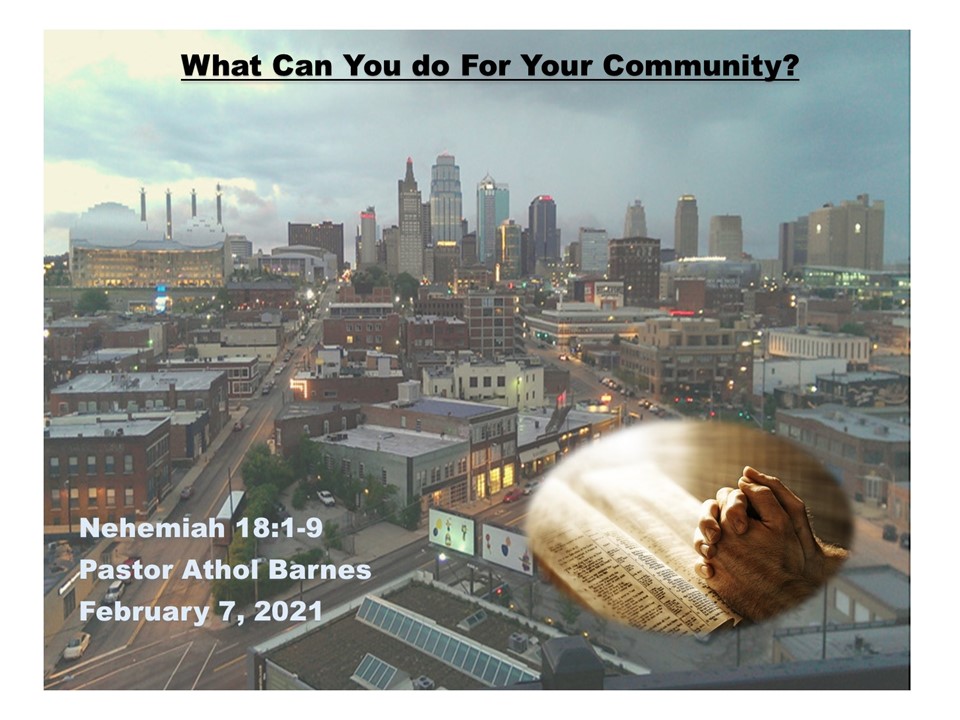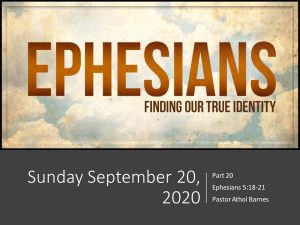
This past Sunday I had the blessing of preaching at the Bethel Family worship center at their pastor’s anniversary celebration. It was a tremendous blessing to honor and celebrate with pastor Dennis Lester.
I spoke about the three things that a church member can do to bless their pastor and bless the church.
We all are familiar with the description of the early church family found in Acts 2:42-47. This is a picture of the first church in Jerusalem after the Holy Spirit has come on the believers, and they are transformed by the power of God.
There is so much that we can learn from this text. Many books and church growth seminars have been devoted to this text. But I want to look at three simple words that we can learn from the people at this church in Jerusalem.
1. The first characteristic we can learn from the early church is that they were present. Verse 42 says that the people devoted themselves to the apostles teaching, fellowship, breaking bread and prayers. The obvious conclusion is that in order to devote yourself to teaching, fellowship, breaking Bread and prayer, is that you have to be present.
Some people are the backbone of the church, showing up at events, giving generously and supporting the ministry in many other ways. Other people only come on Sunday’s and maybe only once a month, or twice, if the chiefs aren’t playing at noon.
I want to encourage you to be present. Show up, get involved, you will be blessed, and it will bless the church family.
2. The second characteristic is participation. Verse 42 continues, “And they were selling their possessions and belongings and distributing the proceeds to all, as any had need”.
Now let’s be clear, this is not a call to communism, rather it is a call to community. Giving of our tithes is one way to participate, but we are also called to give our time, our energy, and our talents. We as followers of Jesus, have been given spiritual gifts by the Holy Spirit for the building up of the body as Paul writes in Romans 12 and verse 4, “For as in one body we have many members, and the members do not all have the same function,”
Paul goes on to list the spiritual gifts that are distributed amongst the members of the church. God has given all the gifts necessary for the church to be effective to the church body. When you do not participate the church misses out, the church is weakened, because you are not exercising your gift.
You may be present each week, but if you are not participating by utilizing the gifts that you have been given as a follower of Jesus, the body of Christ is not running on all cylinders. Something is missing.
The church will be blessed when you are present and participate.
3. The final characteristic of the early church was prayer. Verse 42 says that the early church devoted themselves to prayer.
During our time in South Africa in July, I spent a lot of time asking the Lord about the future that He has for us as a church. One thing that kept coming back to me over and over again is that the Lord wants us to be a praying church.
You might say that we already pray, we have two weekly prayer meetings, we gather for prayer as a staff, we pray before the services, and monthly we pray for an unreached people group. We do a lot of prayer, but are we saturated with prayer, are we seeking the Lord as a church family in our homes and whenever we gather?
What will it look like for our church to become a house of prayer? The way Jesus called for when he cleansed the temple in John 2. What if we were saturated in prayer?
What if before we gossiped about someone, we prayed for them?
Becoming a church that is a house of prayer will bless our community.
A healthy church is present, participating and praying. Three simple characteristics, but as we do these three simple things, there is tremendous fruit in the kingdom of God.
In the past four or five decades, we have seen the emergence of the mega church in America. These are something like the Home Depots of churches, complete with slick programming, smoke machines and big-name speakers. But I still believe in the community church, I still believe in the growing family church, where people are called to commit and feel like they belong.
I believe that a mega church model is by necessity self-serving, and they can only scratch the surface of what a fully committed, fully present, fully praying community church can do in the kingdom of God.
The first church had results, not by adding numbers from other churches but by winning souls. Acts 2:47 says, “And the Lord added to their number day by day those who were being saved.”
That’s real church growth, participating by going out and winning people to Christ.
Let’s commit as a church family to be present, to participate and to pray.





